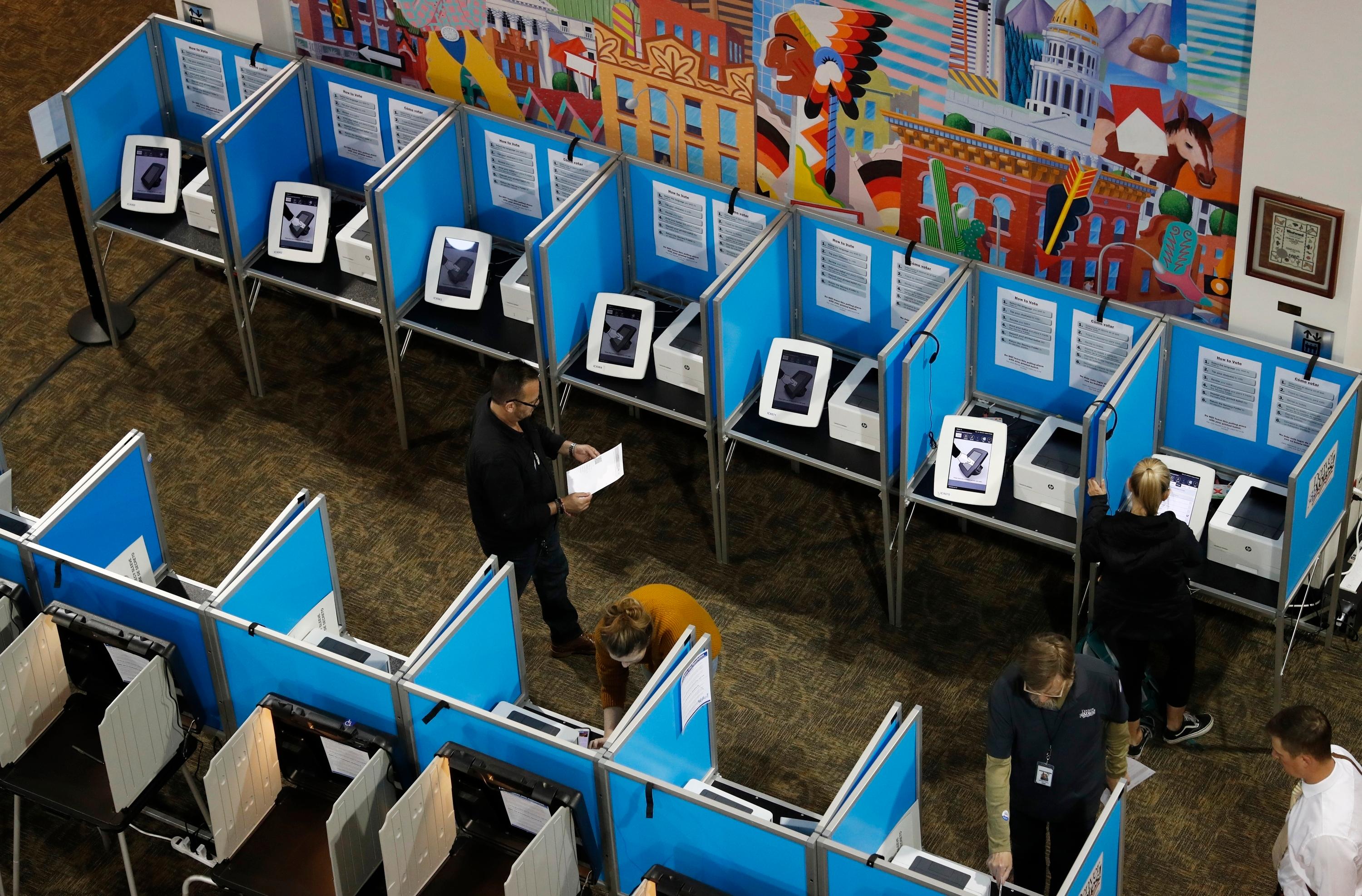
Update Thursday, 12/12:
The “Citizen Qualification Of Electors” initiative has made it onto the 2020 Colorado ballot.
Of the more than 200,000 signatures gathered by supporters of the measure, 137,262 were counted as valid by the Secretary of State's office.
The threshold was 124,632.
The national group Citizen Voters has poured more than $1 million into an attempt to change a few words in Colorado’s state constitution.
It’s part of a well-funded, multi-state campaign to explicitly ban anyone without U.S. citizenship from voting in elections, which critics say is already part of Colorado’s existing law. Organizers say they’re on track to get on the ballot for the 2020 election.
The Colorado effort has collected more than 200,000 signatures ahead of a Tuesday deadline, likely ensuring they’ll have more than enough ruled valid to qualify for the election, according to Joe Stengel, registered agent for the initiative.
“Only people eligible to vote by virtue of being a citizen should be allowed to vote. This will ensure that will take place,” said Stengel, a former Republican state legislator from Littleton.
The measure wouldn’t immediately change much, even if it’s approved by voters.
Colorado already bans noncitizens from voting in state and federal elections, according to the Secretary of State’s office. The state constitution says that “every citizen” may vote, and Initiative 76 would change it to say that “only citizens” may vote.
Some Democrats complain the effort is a distraction or a way to draw conservatives to the polls in 2020. Initiative 76 has been almost entirely funded by interests outside the state. Citizen Voters, a nonprofit based in Florida, has spent about $1.25 million on signature collectors for the Colorado measure. The group doesn’t have to disclose its donors.
Stengel claimed, without providing any evidence, that noncitizens already are voting in Colorado, despite the existing laws.
“They are voting now, and I think that they’ll probably continue to vote if we don’t ensure the integrity of our elections,” he said. He could not point to any specific examples, he said.
Fellow organizer George Athanasopoulos said that Colorado's election laws don't require enough evidence of citizenship. Allegations of fraudulent voting have been a conservative concern for years, while Democrats describe the issue as an excuse to make voting more difficult.
"What mechanism is being used to make sure that people who are not citizens now are not registered to vote?" Athanasopoulos asked.
Former Secretary of State Scott Gessler claimed in 2011 that more than 11,000 noncitizens may have been registered to vote in Colorado, but he later revised that number to 141 suspect registrations. About a quarter of those had cast ballots, The Denver Post reported.
In 2017, President Donald Trump created a voter fraud commission, which turned into a Colorado controversy when former secretary of state Wayne Williams handed over public records about voters. Trump’s commission disbanded in 2018 with few results.
Now, the nonprofit Citizen Voters is turning citizenship and elections into a 2020 campaign issue. Similar initiatives are on track for the ballot in Alabama and Florida, the group said; North Dakota voters approved a citizen voting measure in 2018.
"We’re structured to keep the attention on the issue. We want people to focus on the issue. The opposition can’t run against the issue," Athanasopoulos said.
Noncitizen voting is not currently allowed in any state or federal election. It has been “extinct since Arkansas became the last state to ban it in 1926,” according to the Harvard Political Review. Colorado ended the practice with a constitutional referendum in 1902. The ban includes not just undocumented immigrants but also legal permanent residents, such as green card holders.
However, a few cities in other states have started to change the rules for local elections. For example, noncitizens have been allowed to vote in San Francisco school board races since 2018.
In Colorado, a city could theoretically decide to allow noncitizens into a local election. That’s allowed under the current laws, according to the Secretary of State’s office. But there’s been no attempt to do so, according to Cristian Solano-Córdova, spokesperson for the Colorado Immigrant Rights Coalition.
“To some extent, I think it would be fair for noncitizens to be able to vote in some of those lower level elections, such as for school board, because they have a vested interest, they pay taxes into the system,” he said. “But ... I’m not aware of that being something people are actually pushing for here, so it seems like they’re trying to provide a solution to a nonexisting problem.”
In either case, the phrasing of Initiative 76 wouldn’t actually stop a city from allowing noncitizen voting, according to Mark Grueskin, a top elections attorney for Democrats and left-leaning causes.
“Whatever they intended isn’t what they ended up with,” he said, explaining that the state’s home-rule philosophy would protect cities’ abilities to run their own elections.
Athanasopoulos argued that the state could use its role in managing elections to overcome the home-rule hurdle. The whole issue is likely to end up in court if it passes, he acknowledged, describing the amendment as a "first step" of many.
As a constitutional amendment, Initiative 76 would require the approval of at least 55 percent of voters. And, to get on the ballot, it needs signatures from at least two percent of the registered voters in each of the state’s 35 senate districts.









